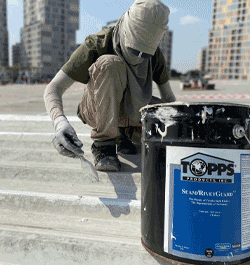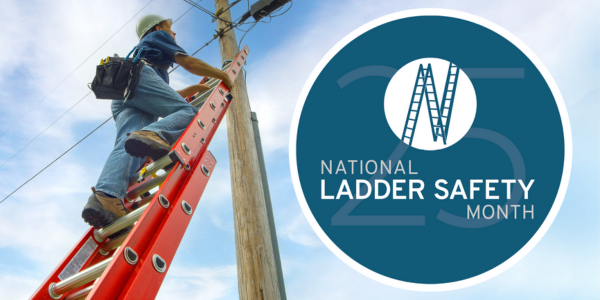UP TO THE MINUTE
Mental health is a safety concern

By Dani Sheehan.
By addressing mental health as a core component of safety, the roofing industry can reduce risks and build a culture of resilience and care that benefits both workers and employers alike.
When we think about safety in the construction industry, the conversation often centers on visible hazards: fall risks, heavy machinery or ensuring compliance with personal protective equipment (PPE). But what about invisible risks? Mental health challenges, such as depression, anxiety and stress have a significant and growing impact on the safety and well-being of crews.
The roofing industry, as well as construction as a whole, is high-stress and male-dominated, valuing toughness and brawn over vulnerability. These societal norms can make mental health issues taboo and seeking help difficult. Compounding this are other challenges in the industry, like seasonal work, long hours, chronic pain and financial strain, all of which can lead to burnout, substance misuses and even suicide. Alarming statistics reveal that construction ranks second highest among major industries for suicide rates, with up to 90% of those who die by suicide experiencing a mental health condition.
Why mental health is an overlooked hazard
Stress and mental health challenges don’t just affect an individual’s emotional state – they impact workplace safety. Stressed or fatigued workers are less attentive, more prone to mistakes and at greater risk of accidents. Research shows that long-term workplace stress contributes to physical illnesses such as musculoskeletal disorders, cardiovascular disease and sleep disorders. It also affects productivity, communication and morale, undermining the overall health of a company.
Psychosocial factors refer to the social and organizational aspects of a job that influence a worker’s mental and emotional well-being. In the construction industry, examples such as low control over job tasks, high demands and limited support from supervisors or other crew members can significantly elevate stress levels. This heightened stress not only impacts mental health but also increases the likelihood of physical injuries and substance misuse. Workers experiencing high stress often feel physical pain and face a greater risk of on-the-job injuries.
Consider the industry’s four main hazards – falls, electrocutions, struck-by incidents and caught-in-between accidents. These account for 60% of construction fatalities annually. Now imagine a stressed, fatigued worker operating in such high-risk environments. Their impaired focus could turn a manageable hazard into a fatal accident.
Addressing mental health isn’t just about compassion – it's about prevention. By mitigating psychosocial risks, construction companies can reduce workplace injuries, improve productivity and foster a culture of care.
What you can do to make a difference for your employees
Creating a workplace that prioritizes mental health doesn’t require a complete overhaul. Small, intentional changes can make a significant impact. Employers can:
- Acknowledge stress: Recognize construction workers face unique challenges and communicate empathy for their struggles.
- Reduce stigma: Foster an environment where mental health discussions are normalized, and seeking help is seen as a strength, not a weakness. Consider incorporating mental health issues into your rotation of toolbox talks.
- Promote work-life balance: Encourage reasonable work hours and support flexibility for workers facing personal challenges. Consider mental health as a normal factor of project timelines, such as holidays or weather delays.
- Train supervisors: Teach leaders in the company to recognize signs of mental health struggles and guide workers to appropriate resources. RCS Influencer Mandy McIntyre owns Level Up Consultants and specializes in Mental Health First Aid training to help you and your crew get started.
Addressing mental health promotes both a healthier workplace culture and smarter business decisions. According to the World Health Organization, for every dollar U.S. employers spend on mental health initiatives, they see a return of $4 in improved health and productivity.
Safety starts with support. The National Roofing Contractors Association (NRCA) provides comprehensive tools and guidance for mental health resources tailored to our industry. Access these resources on their mental health page and learn how you can create a safer, more supportive work environment.
Learn more about National Roofing Contractors Association (NRCA) in their Coffee Shop Directory or visit www.nrca.net.
About Dani
Dani is a writer for The Coffee Shops and AskARoofer™. When she's not writing or researching, she's teaching yoga classes or exploring new hiking trails.





















Comments
Leave a Reply
Have an account? Login to leave a comment!
Sign In